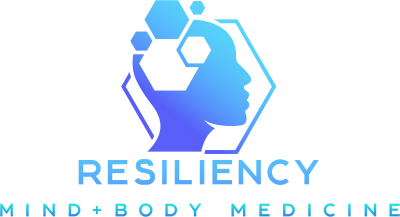Benefits of NAD IV Therapy
An innovative therapy has emerged to aide mental health, cognition, and overall well-being: NAD+ IV Therapy
NAD+ (nicotinamide adenine dinucleotide) is a coenzyme found in every cell of our bodies, playing a crucial role in various biological processes. In this blog post, we will delve into the fascinating world of NAD+ IV therapy, examining its mental health benefits, outcomes, potential side effects and risks, the recommended frequency of infusions, and the duration of an infusion session.
The Mental Health Benefits of NAD+ IV Therapy
- Enhanced Cognitive Function: NAD+ is involved in crucial cellular processes, such as energy production and DNA repair, which are essential for optimal brain function and promoting cell recovery. By replenishing NAD+ levels, IV therapy may promote mental clarity, improved focus, and enhanced cognitive abilities.
- Mood Regulation: NAD+ is intricately linked to the production of neurotransmitters, including serotonin, dopamine, and norepinephrine, which play vital roles in mood regulation. By optimizing these neurotransmitter levels, NAD+ IV therapy has the potential to alleviate symptoms of anxiety, depression, and mood disorders.
- Reduced Withdrawal Symptoms: NAD+ IV therapy has shown promise in supporting individuals struggling with substance abuse and addiction. By reducing cravings and mitigating withdrawal symptoms, it can aid in the recovery process and promote long-term sobriety.
Outcomes of NAD+ IV Therapy
While individual experiences may vary, many individuals have reported positive outcomes from NAD+ IV therapy, including:
- Increased mental clarity and focus.
- Elevated mood and reduced feelings of anxiety or depression.
- Enhanced energy levels and improved overall vitality.
- Improved sleep patterns and quality of rest.
- Increased resilience to stress and improved stress management.
Potential Side Effects and Risks
NAD+ IV therapy is generally considered safe when administered by trained healthcare professionals. However, like any medical intervention, there are potential side effects and risks to be aware of, which may include:
- Temporary flushing or warmth in the body.
- Mild headache or dizziness.
- Nausea or upset stomach.
- Localized pain or discomfort at the infusion site.
- Allergic reactions (rare).
Frequency of Infusions
The recommended frequency of NAD+ IV therapy varies depending on the individual’s specific needs and goals. While some individuals may benefit from a single session, others might require a series of infusions over a period of weeks or months. It is best to consult with a healthcare professional like the team at Resiliency Mind+Body Medicine, who are experienced in NAD+ therapy to determine the most suitable treatment plan for your unique circumstances.
Duration of an Infusion Session
The duration of a NAD+ IV therapy session can vary depending on several factors, such as the dosage, the individual’s response, and the specific protocol followed. On average, an infusion session may last between one to two hours. During this time, the healthcare professional will monitor the patient closely to ensure their safety and comfort.
Conclusion
NAD+ IV therapy holds promising potential for supporting mental health and overall well-being. By replenishing NAD+ levels, this therapy may contribute to improved cognitive function, mood regulation, and even aid in addiction recovery. However, it is important to remember that NAD+ IV therapy should always be administered by qualified professionals, and individual experiences may vary. If you are considering NAD+ IV therapy, consult with a healthcare professional experienced in this field to discuss the potential benefits, risks, and the most suitable treatment plan for you. With the right guidance, NAD+ IV therapy may be a valuable tool in your journey towards optimal mental wellness.

